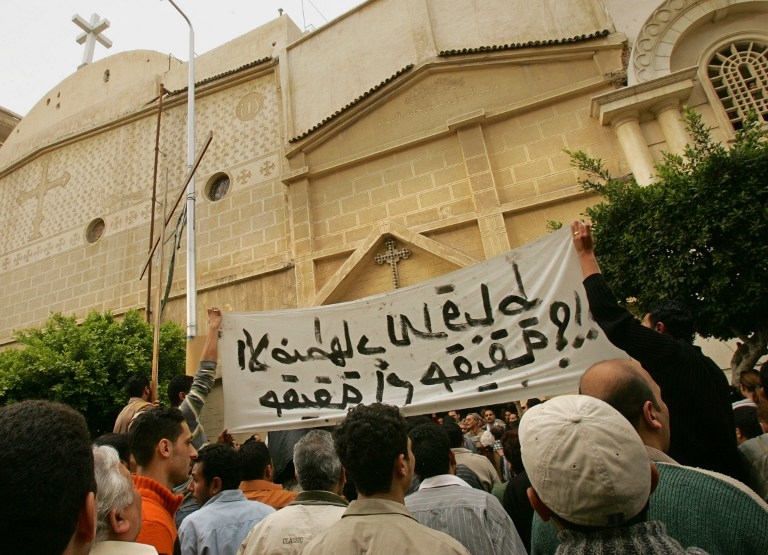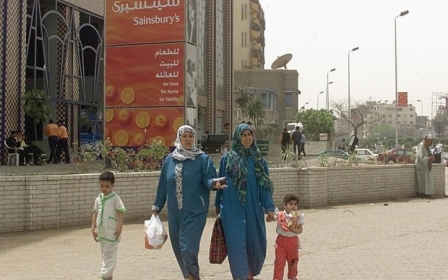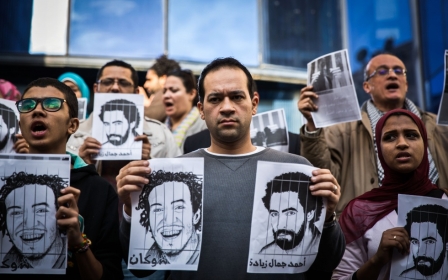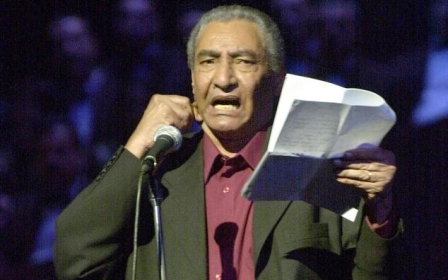69 get life for torching church in Egypt

An Egyptian court on Wednesday jailed 69 Islamists for life for torching a church near Cairo in August 2013, as anger flared over a crackdown on supporters of ousted president Mohamed Morsi.
The Coptic church was set on fire and a police station was attacked when violence erupted in the town of Kerdasa on 14 August that year, after hundreds of Morsi supporters died in a crackdown on two protest camps in the capital the same day.
The court also sentenced two minors to 10 years in jail in the same case. A life term in Egypt amounts to 25 years in jail.
The defendants were found guilty of "setting the church on fire, attempting to murder civilians and possessing illegal weapons," a judicial official said.
Hundreds of Morsi supporters have been given death sentences or jailed for life after often speedy mass trials, which the United Nations has called "unprecedented in recent history".
The Egyptian judicial system has come under sharp scrutiny from experts who see it as a politicised tool of the executive.
“We are dealing with an administration that has no real legitimacy and a judicial system completely under the influence of a military coup leadership,” international law expert Toby Cadman told MEE last week.
Morsi himself was handed a 20-year prison term last week for ordering the arrest and torture of demonstrators involved in clashes in 2012 when he was president. The verdict can be appealed.
Morsi was ousted by then army chief and now President Abdel Fattah al-Sisi on 3 July 2013 after mass street protests against his year-long divisive rule.
Many Sisi opponents lashed out at Egypt's Christian minority after Coptic Pope Tawadros II appeared on television alongside Sisi when the army chief announced Morsi's removal to the nation.
Systematic campaign
Human Rights Watch said more than 40 churches were attacked in the violence after Morsi's ousting, mainly in central Egypt.
The Copts, who account for some 10 million out of Egypt's population of more than 85 million, have often suffered persecution.
But they say they had never seen such a systematic campaign against them as that witnessed in the aftermath of Morsi's overthrow.
Apart from the church being torched, Kerdasa was the scene of deadly violence just hours after police cracked down on his backers in Cairo's Rabaa al-Adawiya and Nahda squares.
Thirteen policemen were killed in the attack on a Kerdasa police station by angry mobs.
In February, a court confirmed death sentences against 183 men convicted of killing the policemen, in a verdict that was denounced as a violation of Egypt's human rights obligations.
Since Sisi deposed Morsi, at least 1,400 people have been killed in a police crackdown on protests, mostly Islamists. Thousands more have been jailed.
Rights groups and critics of Sisi say authorities are using the judiciary as an arm to repress any form of dissent, including from secular activists.
A court is to issue verdicts in two separate cases against Morsi on 16 May on charges that are punishable by death.
Morsi and 35 others are accused of allegedly conspiring with foreign powers, including Iran, to destabilise Egypt.
And he stands accused in a second case of staging a jailbreak and attacks on police stations during the 2011 uprising that ousted president Hosni Mubarak.
Stay informed with MEE's newsletters
Sign up to get the latest alerts, insights and analysis, starting with Turkey Unpacked
Middle East Eye delivers independent and unrivalled coverage and analysis of the Middle East, North Africa and beyond. To learn more about republishing this content and the associated fees, please fill out this form. More about MEE can be found here.




